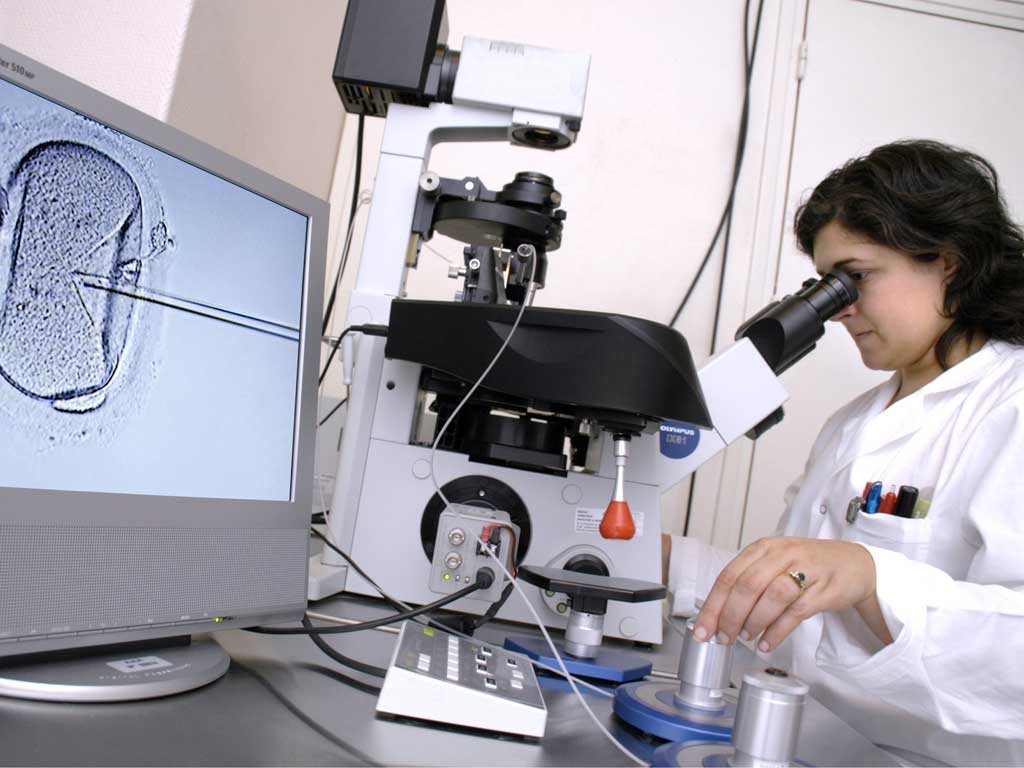Defect risk 'higher for assisted births'
A new study suggests that fertility treatment can increase the likelihood of congenital problems

Your support helps us to tell the story
From reproductive rights to climate change to Big Tech, The Independent is on the ground when the story is developing. Whether it's investigating the financials of Elon Musk's pro-Trump PAC or producing our latest documentary, 'The A Word', which shines a light on the American women fighting for reproductive rights, we know how important it is to parse out the facts from the messaging.
At such a critical moment in US history, we need reporters on the ground. Your donation allows us to keep sending journalists to speak to both sides of the story.
The Independent is trusted by Americans across the entire political spectrum. And unlike many other quality news outlets, we choose not to lock Americans out of our reporting and analysis with paywalls. We believe quality journalism should be available to everyone, paid for by those who can afford it.
Your support makes all the difference.Fertility treatment increases the risk of birth defects in babies, according to the largest scientific study of its kind. Babies conceived by assisted techniques are at least one-third more likely to suffer from congenital problems than those conceived naturally, the new research has found.
Birth defects including heart, spinal and urinary tract problems, limb abnormalities and cleft palates were present in more than 8 per cent of fertility-assisted pregnancies, compared with almost 6 per cent of babies conceived naturally, according to researchers at the University of Adelaide in Australia.
The new study – believed to be the most comprehensive such research in the world – indicated that the risk of defects was different for various infertility treatments. Following examination of more than 300,000 births, researchers found that couples who did not need fertility treatment had a 5.8 per cent risk of having a baby with a birth defect, while the defect risk rose to 8.3 per cent where parents underwent assisted conception.
The study's leader, Professor Michael Davies, insisted the research team did not "want to scare people", pointing out that the vast majority of babies are born healthy.
Not all treatments were equally risky, the survey suggested. The results showed that in vitro fertilisation (IVF) posed the least risk to women opting for assisted conception, with defects occurring in 7.2 per cent of pregnancies. IVF's main alternative, intracytoplasmic sperm injection (ICSI), which involves the injection of a single sperm directly into an egg, was found to pose a higher risk, with major birth defects occurring in 9.9 per cent of births, almost one in 10.
Professor Davies said there were several theories about why ICSI was riskier, involving the potential use of damaged sperm or damage caused by manipulation of the sperm and egg in the laboratory. "There are factors associated with ICSI that require further research," he said.
The study takes into account other factors linked to birth defects including the underlying fertility problems and influences such as smoking.
One surprising finding is a tripling of risk among the small number of women who used the drug clomiphene citrate to stimulate ovary production. The drug, which is cheap and widely available on the internet, is known to cause foetal abnormalities if the woman taking it is unaware that she is already pregnant.
Professor Davies said: "While confined to a small group in our study, this is of particular concern as clomiphene citrate is now very widely available at low cost."
Since the birth of the first "test tube baby", Louise Brown, in Oldham in 1978, the number of births worldwide resulting from artificial fertilisation has grown to about a quarter of a million annually, with techniques ranging from stimulating the ovaries to produce eggs to the artificial insemination of a woman.
The latest Australian findings follow a report published in April by Nanjing Medical University, which found a similar level of risk among assisted pregnancies. Yet the Australian team's conclusion on the risk from ICSI clashes with that of the Chinese researchers, who found no difference compared with IVF.
Join our commenting forum
Join thought-provoking conversations, follow other Independent readers and see their replies
Comments